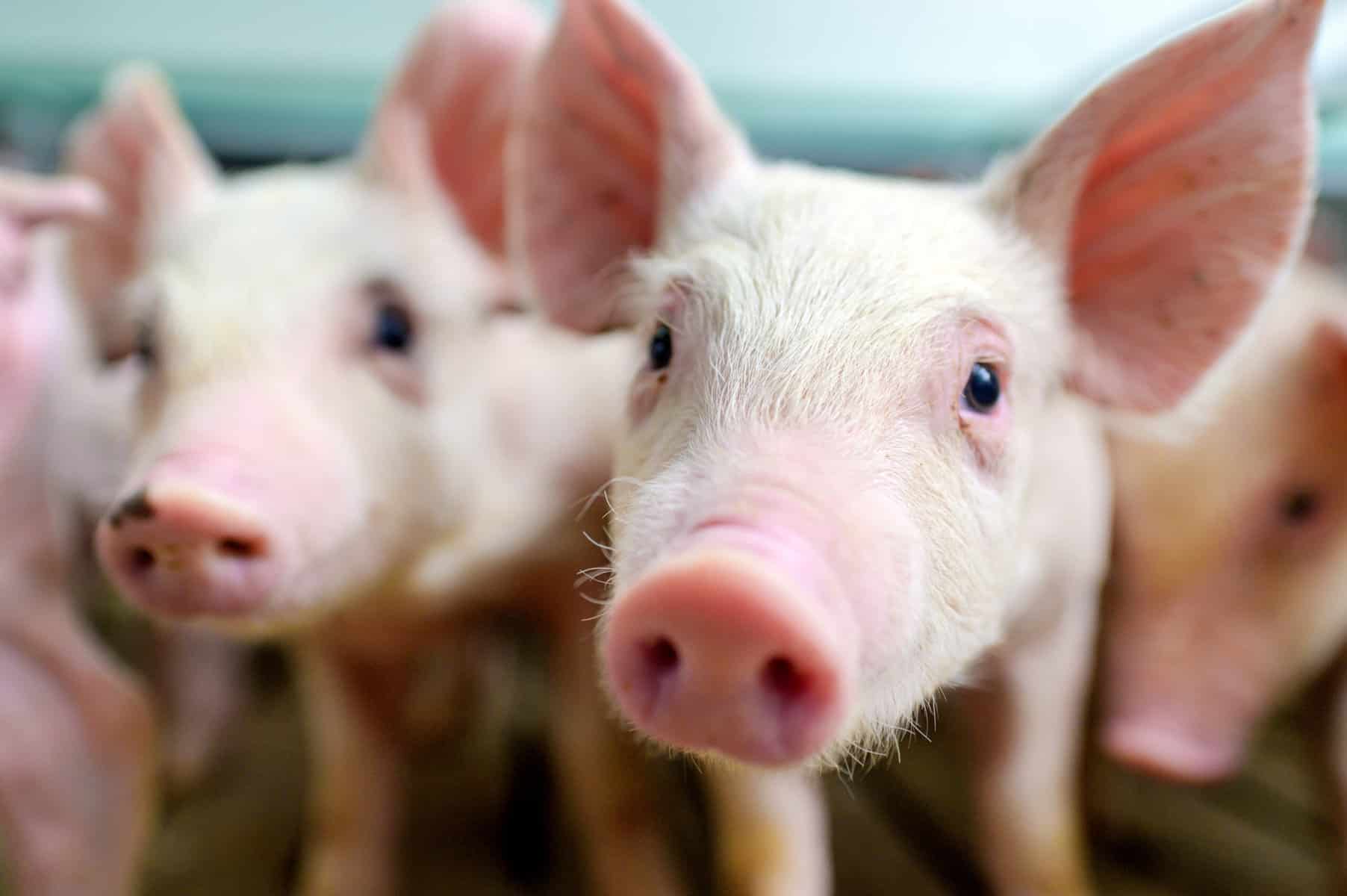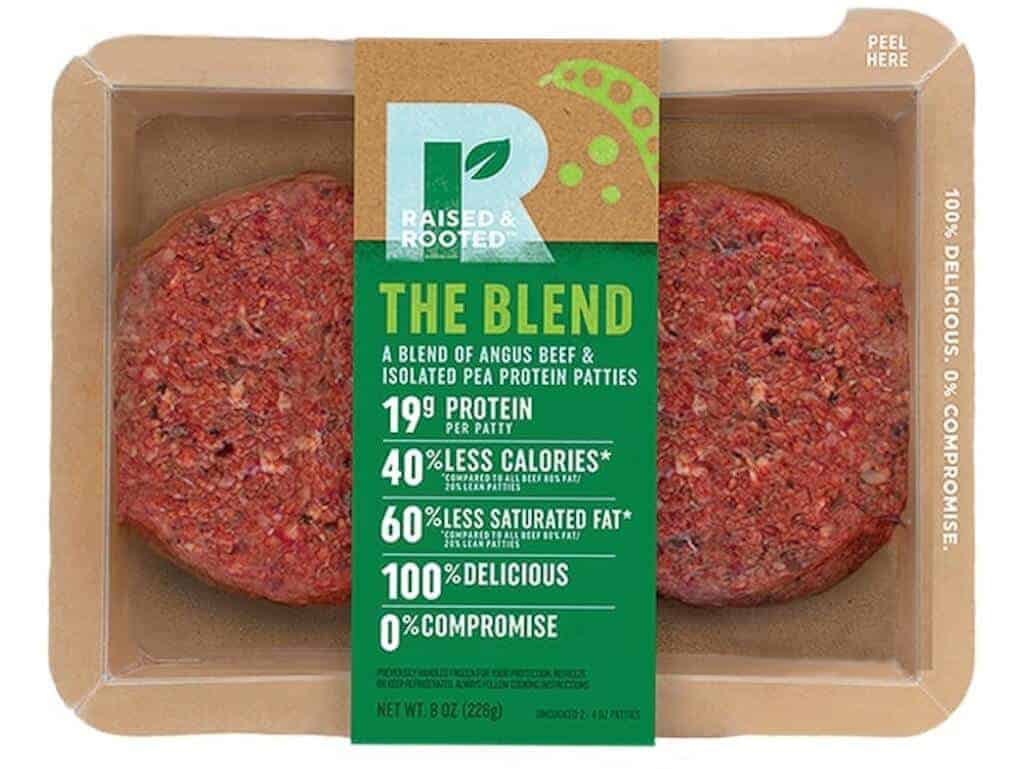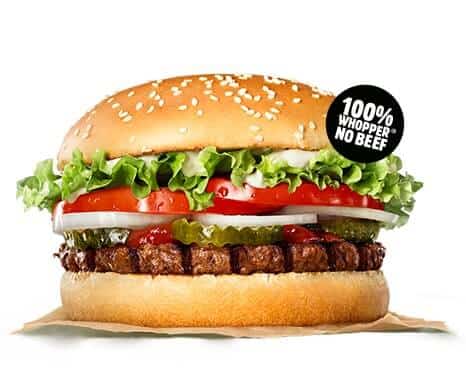First of all, to be clear, blended and hybrid products are no new thing and have existed for years, both successfully and unsuccessfully. As a publication specialised solely in the vegan business niche, we have widely avoided the topic of products consisting of plant (or fungi) meat blended with animal protein, since we do not write about animal products.
But this is different and it would be remiss of us to not report, that:
Quorn Foods, pioneer of meat-free products since 1985, today announces that “Quorn Foods’ role in the past was to help a few people eat no meat. We have now evolved into a company that helps everyone eat less meat.”
Why is this significant?
As most people in the food industry are aware, flexitarians are the key drivers in this sector, and as we have said many times before: we vegans are already vegan. So it is crucial to focus on the habits and tendencies of the vast majority: meat-eaters / meat reducers / omnivores / your common Joe on the street. It is he who will create change.

Quorn’s (or rather, Marlow Ingredients‘) mycoprotein ingredient will now be integrated into blended products that include animal meat. The products (for foodservice, including NHS hospitals, that will exist alongside the company’s usual range) “will be made by our catering customers, we will be working with them to supply our product only,” says the company, stating that it expects these products to be on menus sometime before the end of this year.
The meat reduction is not happening fast enough
In a statement sent to vegconomist, Quorn explains the following.
- The reduction in meat consumption is not happening fast enough or with enough scale.
- One of these solutions is to work with our foodservice partners, targeting the contract catering and healthcare sectors, as they blend meat with Quorn to make staple products like burgers and sausages, and replace the 100% meat versions on menus.
- This project will see Quorn support the partner as they develop and market their products.
- The Marlow Ingredients division is already providing solutions to players in meat and dairy, this is an evolution of us trying to be a choice for everyone.
- We started as an alternative protein to solve a global problem, became an alternative protein for vegetarians, and are now, once again, an alternative protein to solve global problems.
Why this is necessary
We do not need to remind you of the environmental aspect of why a reduction in consumption of animal meat is beneficial for climate and planet. You can see evidence of this here, here, here, and here. Oh, and here (you might want to read that one).

But. In terms of pork consumption in the UK, where Quorn is based, Statista says per capita consumption in 2007 was 18.2kg, which dropped to 15.91 in 2022, representing a 12.58% decrease over the course of 15 years. Statista projects this number to fall to 15.76kg in 2027, a decrease just of 0.94% in the five year period 2022 – 2027.
This means (very roughly) that consumption of pork meat in the UK was previously declining at a rate of 0.8% and now is dropping at a rate of 0.2%. The decline is slowing significantly.
As the company stated, the reduction is not happening fast enough.
A study by the University of Oxford’s LEAP on Trends in UK meat consumption concluded, “Despite the overall reduction in meat intake, reaching meat-consumption targets that align with sustainable diets will require a substantial acceleration of this trend.”
Furthermore, the US Food and Agriculture Organization’s (FAO) June 2024 Food Outlook states, “Global meat production in 2024 is forecast to expand marginally to 371 million tonnes (carcass weight equivalents). Output increases are anticipated in all the regions, except for Asia, most notably of pig meat in China.”

“World trade in meat and meat products is forecast to rebound after two consecutive years of contraction. The rebound will be principally driven by a solid import demand expected in all regions, especially in Northern America,” adds the FAO.
In essence, there is far more work to be done. And urgently.
Blended products, a context in brief
Many meat eaters aren’t ready to completely give up on their favorite dishes but are looking for ways to eat healthier and reduce their carbon footprint,” states ICL. “The solution is hybrid products that combine meat and plant-based ingredients that provide the flavor and texture consumers crave, with the healthfulness that they desire.”
The GFI said on the topic: “Several small-scale and large-scale (Perdue, Tyson, Hormel, Dairy Farmers of America) food companies offer a variety of hybrids. These products typically contain 20–50% plant protein with various plant-based ingredients like vegetables, fruits, mushrooms, and spices. Biomass fermentation-derived mycoprotein blends like the Better Meat Co.’s partnership with Perdue chicken is another hybrid possibility. Hormel has argued that a blend of 70% meat and 30% plant-based ingredients is ideal for flavor and production.”

According to the GFI, European consumers are open to trying blended meats with 25-50% plant content. Initiatives like the James Beard Blended Burger Project, which involve consumer input, can boost acceptance. A study found that a 70% meat and 30% mushroom blend was preferred in taste over various plant-based burgers in a blind test.
The Frontiers’ analysis, Meat hybrids – An assessment of sensorial aspects, consumer acceptance, and nutritional properties, explains that these products can help consumers reduce meat intake and transition to healthier, more sustainable diets, according to Frontiers’ paper. Its research indicates that a meat blend with 30% plant-based protein can still appeal to consumers, with about 50% of participants showing a high willingness to buy. Pea protein combined with textured vegetable protein (TVP) was identified as the best option for these hybrids.
A thought experiment
We reached out to Paul Shapiro, CEO and founder of The Better Meat Co, which also supplies its mycoprotein for blended products, “

Paul states the following to vegconomist on the subject of hybrids.
“Now imagine that in addition to the Impossible Whopper reducing beef demand by 2%, BK were also to make its conventional Whopper 25% plant-based. In this case, while it would be condemned as a half-measure (or a quarter measure) by some vegans, it would actually reduce beef demand dramatically more than offering the vegan option alone.
“In other words, in some scenarios hybridizing meat can help spare far more animals than vegan options alone. I remember how excited many animal advocates were 6-8 years ago when plant proteins started displacing animal meat in the meat aisle at supermarkets. Why not also be excited about it displacing animal meat in the meat itself?”

Quorn’s statement in full
Quorn’s statement regarding this development, which we felt apt to publish in full, is as follows. In the words of CEO Marco Bertacca (verbatim):
Mycoprotein, the unique ingredient in all Quorn products, was developed as an alternative protein source to help solve a global problem – food shortages. It now has the potential to help solve two new global issues: climate change and human health (obesity).
In 1985 the first consumer products in the world containing mycoprotein – a natural, nutritious fungi-based protein – were launched in the UK under the Quorn brand, becoming the first major consumer brand for vegetarians.
Over the last 20 years we, have seen Quorn’s consumer base expand to include flexitarians – a new type of consumer that actively tries to eat less meat, for both health and sustainability reasons. And this has resulted, in some more mature markets, in a reduction in the overall consumption of meat, which scientists agree would reduce global carbon emissions and help combat climate change. But that reduction is not happening fast enough, and with enough scale to have a meaningful impact, and so there is an urgent need to find new ways to reduce meat consumption.

To that end, we are now working with our customers in the food-away-from-home sector to help them not just with meat-free menu items, but also those made from a blend of meat and Quorn, that can replace their 100% meat core menu items. This reduces the total amount of meat being eaten by their customers – helping tackle climate change and improve public health – while still delivering great-tasting food which people are familiar with.
One example is the National Health Service – the UK’s biggest employer, also feeding hundreds of thousands of patients every day – who we are working with to develop Quorn and meat blended recipes. The NHS recognises the multiple benefits this will deliver: fewer carbon emissions going into the atmosphere, as well as less saturated fat, less cholesterol, and more fibre going into their patients’ and employees’ diets. It is vital that we offer the right choices to patients and staff within a healthcare setting, serving great, nutritious food.
We are also supporting some of the world’s biggest catering companies as they develop products made from the perfect blend of meat and Quorn. We are providing Quorn so that they can create popular menu items and staple products like burgers and sausages. Serving food to millions of people every day, means the scale of the opportunity is huge. This will significantly reduce the carbon footprint of their menus, and so help them achieve their climate targets.

Once upon a time, we were effectively competing with the meat industry – only making products that were alternatives to theirs, and encouraging people to switch. Of course, we still offer these products, but as human knowledge has evolved, businesses are evolving, including ours. We now find ourselves collaborating to offer less-meat options to consumers who are looking to reduce meat consumption, but do not eat vegetarian or vegan meals. This represents the majority of people, and so it is a massive opportunity to decarbonise part of the food system and improve public health.
There have been attempts in the past to make products like burgers and sausages with a blend of meat and plant-based ingredients like soya and pea-protein, but the products have not delivered for consumers. The meat producers we are working with now tell us that Quorn is by far the best meat alternative to blend with meat because of our unique mycoprotein and its very meat-like texture.
Quorn Foods’ role in the past was to help a few people eat no meat. We have now evolved into a company that helps everyone eat less meat – because that’s what the world needs – and we will continue to find new ways to do that.
Footnotes: Quorn’s mycoprotein research
Academic research has shown that mycoprotein may have a beneficial effect on cholesterol reduction; the gut microbiome; insulin regulation; satiety and weight management.
Links to further information on mycoprotein:
VTT Study Finds Mycoprotein a Sustainable Superfood & Next-Level Nutrient Powerhouse




